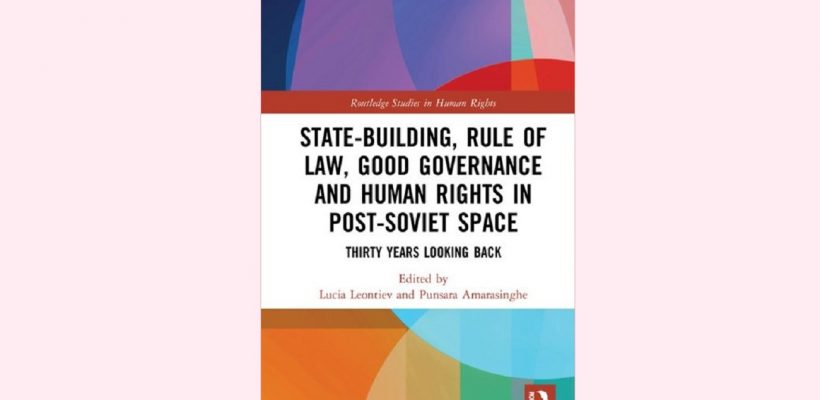
PSIA Faculty Dr. Asbed Kotchikian Published by Routledge
2 min readYEREVAN, Armenia — Dr. Asbed Kotchikian, associate professor at the American University of Armenia (AUA) Political Science and International Affairs (PSIA) program, recently published a chapter in the book State-Building, Rule of Law, Good Governance and Human Rights in Post-Soviet Space: Thirty Years Looking Back, released by Routledge on May 10, 2022.
The book assesses the presence (or absence) and the level of influence of the Soviet legacies in the constructed political and legal systems of the post-Soviet republics. Appraising whether an individual’s interests are protected in theory and practice, it conceptualizes the legacies that the Soviet Union has left behind in the post-Soviet space that still endure after 30 years from disintegration.
Dr. Kotchikian’s chapter is titled “Rule of Law and Good Governance in Armenia: On the Law and Praxis.” It provides an assessment of the discrepancies between legal norms, publicly stated narratives of intentions and their actual implementation.
According to his research findings, while governance and rule of law are independent of regime type, it is more likely that those two would thrive and reach their full potential under democratic regimes with strong and established institutions. Since its independence, Armenia has made strides to develop state institutions, including but not limited to establishing mechanisms of good governance, as well as institutions based on rule of law, albeit with mixed results. Both rule of law and good governance are dependent not just on legal norms and legislation but also on their application and enforcement, Dr. Kotchikian claims.
“While the idea of ‘good governance’ is a buzz word used by international organizations and states alike to designate a country’s ability to have an effective, transparent and accountable governing body, my research reveals a less ‘demanding’, and probably a more realistic concept of ‘good enough governance’. This concept seems to make more sense for a country like Armenia as it strives towards developing its institutions along with good practices of government,” Dr. Kotchikian elaborates.
The Political Science and International Affairs (PSIA) program of the American University of Armenia (AUA) equips students with advanced analytical reasoning, critical thinking, and communication skills through the study of political science and international affairs, emphasizing local and global perspectives and practical applications of theory. The program provides world-class teaching and research, producing graduates who can best contribute to the development of the nation.
